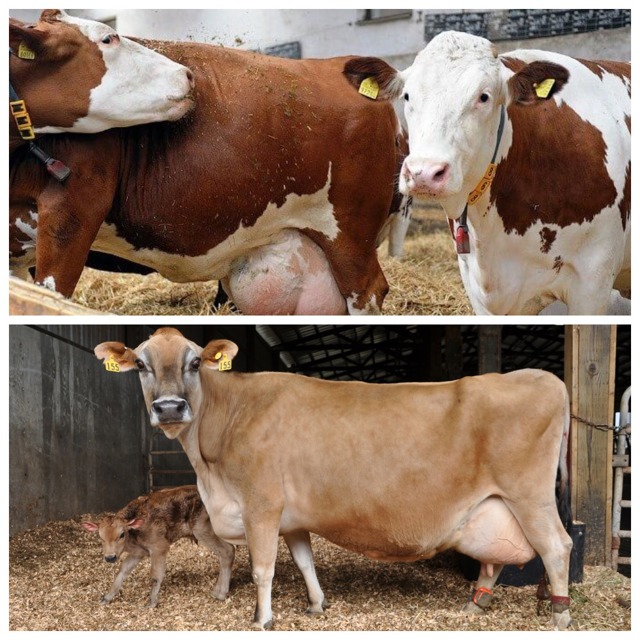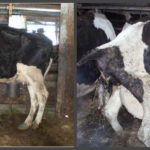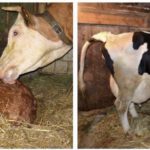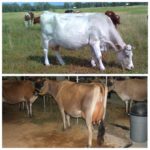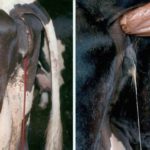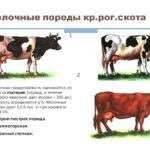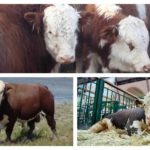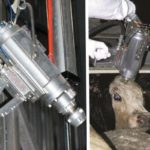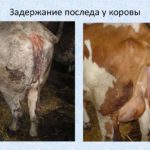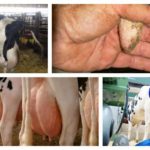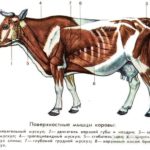Owners usually monitor the condition of a pregnant cow very carefully, because the health of the adult animal and calf depends on it. Beginning farmers need to know when and what kind of discharge in pregnant cows is normal, and when they should urgently seek veterinary help in order to prevent fetal death and the development of gynecological diseases in the animal.
Causes of clear discharge
There are several reasons for clear discharge in a cow, in which there is no admixture of pus or blood; they occur before pregnancy and during different periods of pregnancy.
Discharge rate
Normally, mucus does not have an unpleasant odor, yellow, greenish or brown tint.
- Transparent, stretchy discharge that appears at the initial stage of estrus shows that everything is fine with the cow, she is healthy and ready for fertilization. These secretions have a characteristic odor.
- In 80% of animals, transparent mucus begins to be secreted 1.5-2 months after insemination. Sticky discharge is normal for an animal and indicates pregnancy.
- The last time during pregnancy, clear discharge in cows is observed 10-20 hours before the calf appears. Mucus comes in to lubricate the birth canal and make calving easier.
These conditions are a physiological norm for the animal and do not require a veterinary examination.
Possible deviations
You should call a veterinarian if the mucus is brown, green, yellow, or mucus mixed with blood or pus. Brown, green or yellow discharge is a sign of vaginitis or endometritis. Abundant mucus with bloody streaks or having a yellowish tint is the first sign of abortion.
Vaginitis often appears after insemination, endometritis (inflammation of the inner layer lining the uterus of a cow) - during pregnancy, after calving. These diseases are characterized by sticky mucus with a pungent, unpleasant odor.
The cause of gynecological diseases of cows is sometimes dampness and cold in the barn, and vitamin deficiency of the animal.
First aid for unusual discharge
You should transfer the animal to a separate stall, on a clean, dry bedding, and call a veterinarian.You can rinse the vagina with a pinkish solution of potassium permanganate (potassium permanganate). To do this, it is convenient to use a rubber heating pad with a long hose (Esmarch mug), buy it at a regular or veterinary pharmacy. Instead of potassium permanganate, use a solution of furatsilin. Vaginal or rectal suppositories (suppositories) with an antibacterial effect (for example, synthomycin) are administered.
After the examination, the veterinarian will prescribe tests and treatment to relieve inflammation and eliminate discharge.
Prevention of gynecological diseases
Animals must be kept in dry, warm and clean rooms. A veterinarian regularly examines the cows, prescribes treatment at the first signs of illness, observes the animals from insemination to calving, and examines them after birth. If insemination is carried out naturally, the bull is examined for the presence of inflammatory diseases.
When diagnosing endometritis, symptomatic treatment is carried out in the presence of exacerbations.
Animal nutrition must be balanced and include vitamin and mineral complexes. From the moment of insemination and establishment of pregnancy, the veterinarian must monitor the development of the fetus. After pregnancy is established, if there are problems, laboratory diagnostics and ultrasound are performed to assess the condition of the fetus and the course of pregnancy. The owner must treat the animal with care and follow the doctor’s instructions.

